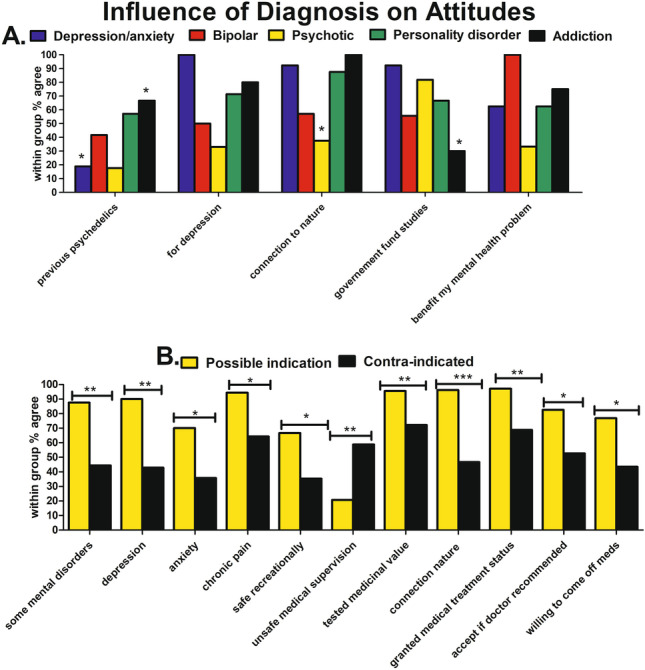Fig. 4.

Influence of diagnosis on attitudes to psilocybin therapy. A Fewer people with depression/anxiety previously used psychedelics (p = 0.03) yet were more likely to agree that the government should fund studies (p = 0.02). More people with addiction disorders previously used psychedelics (p = 0.01), and this group was less likely to agree that the government should fund studies (p = 0.01). Participants with psychotic disorders disagreed that psychedelics increase connection to nature (p = 0.01). B Diagnoses with a possible therapeutic indication were more likely to agree that psilocybin may be useful for some mental health disorders (p = 0.003), for depression (p = 0.003), anxiety (p = 0.048), chronic pain (p = 0.03), safe recreationally (p = 0.03), increases connection to nature (p < 0.001), should be tested for medicinal value (p = 0.009), granted medical treatment status (p = 0.004), would accept if doctor recommended (p = 0.016), and willing to come off medications (p = 0.08). Those with diagnoses with a possible therapeutic indication were more likely to disagree that psychedelics are unsafe even under medical supervision (p = 0.009)
